Halal Slaughtering is Way More than Besm Ellah
December 29, 2013 | Rana Kamaly 5It’s the Eid El Adha (the feast) and everywhere there are trucks loaded with more cows than it should take and the cows’ necks are hanging out as they await their fate. Men gather around holding the animal down as it cries and whales to the site of the knife and its fellow victims’ slaughter. Somewhere else, the larger animals’ knees are getting broken so they would fall to the ground and it would make for an easier slaughtering — for the butcher, of course. Then the dead bodies are hung headless in front of butchers shops as blood fills the street.
When anyone speaks of not eating meat in a stand against animals abuse, they all too often get the same response: “Allah allowed us meat, why do you want to deprive us of it?”
I wondered why Islam, a merciful religion, would allow this. So I went on a research mission and spoke to religious experts, butchers and veterans. The conclusion? Islam ordered us to be kind and merciful on animals, even when being slaughtered, and what happens to animals in Egypt is far from Islam or what it deems as halal slaughtering.
Islam and Slaughter
Nash’at Kamal, an Imam (preacher) at Al Tawhid and Hamza mosques, explains that while Islam allows for eating meat, it has also ordered us to be kind towards animals. He adds that the prophet Muhammad (PBUH) instructed slaughterers to be merciful and there is a set of rules for halal slaughtering and if a condition is missing, the meat is not halal and Muslims are forbidden from eating it.
Rules actually followed:
– Announcing the name of Allah and saying Bism Ellah (in the name of Allah)
– Slaughtering the animal, as opposed to suffocation or other techniques used to kill animals elsewhere
– Cutting the main blood arteries so the animal doesn’t feel unnecessary pain
– Making them face the Kibla (Mecca)
– The slaughterer has to be a man of the book (Muslim, Christian or Jew)
Kamal argues that the first four rules are the ones that must be followed for the meat to be halal, while others are also necessary, but debatable to whether they make the meat forbidden to be eaten or not. Other scholars, however, disagree.
Rules often overlooked: According to late Islamic scholar Mustafa Adel’s book The Islamic Sacrifice, the following are also vital rules Muslims should follow to comply with the Islamic slaughtering guidelines:
– The knife needs to be very sharp so the animal doesn’t feel unnecessary pain
– The animal shouldn’t see the knife
– The animal shouldn’t see other animals being killed
– They should be well-tread and well-fed before being killed
– The animal must be seated in a comfortable position
– It must be left to bleed out before cutting the head or removing the skin
– The animal must not be sick and if he is, then the slaughtering must be delayed until recovery
– They should be comfortably transferred and not in a crowded car
– If the animal had been transported from one place to another it has to spend one whole day at that place before being slaughtered so they’re not in psychological or physical discomfort
According to Ahmed Nabil, a vet and an animal’s right activist, “it has been proven scientifically that the Islamic slaughter, if followed correctly, the animal doesn’t suffer at all, especially if the cut is made cleanly and quickly, because it loses consciousness immediately before any pain is delivered to its senses. ”
Even though Kamal isn’t certain all those rules are a must for the meat to be halal, even though he knows they have been stipulated by Islam and the prophet (PBUH), he maintains that Islam forbids us from being cruel to animals. “We as Muslims are prohibited from treating animals cruelly, killing them for anything other than eating, overloading the cars carrying animals, and making them fight for entertainment,” Kamal says. “So of course animal torture is religiously frowned upon and very sinful. ”
Yet butchers choose to only follow the besm Allah part; neglecting all the given rules God gave us.
Nabil argues that this is against Islamic teachings that ordered us to follow the rules of the Quran and the Sunna together. So even if the Quran doesn’t get into the details of merciful slaughter, we must also follow the guidance of the prophet (PBUH) that complement those of Allah.
Crimes against animals:
One butcher in Nasr City says, “sheep and goats are all placed in one place, then we take them one by one to slaughter them.” when asked whether or not they see each other, he replied “there is no harm when small animals see each other, and, besides, I won’t blindfold them or buy them another place to stay in,” he laughs. “But with cows and camels, they can’t even see the knife, because otherwise I am dead,” he says.
Warning: The below video is not for the faint hearted
Butchers also often starve the animals days before slaughter, giving them only salt and water, while others break their knees to make it easier to slaughter.
The dead body is also often hung upside down, headless, for customers to buy. A butcher explained this is often done so customers can see that the meat sold isn’t that of a donkey or otherwise.
“My 8-year-old daughter panics and vomits at the sight of the hanging headless cows,” says Mostafa.
Last Eid, I watched several bearded men at the butcher’s after el fajr (dawn) prayers waiting for their turn to slaughter their sacrifice. I naively thought since they would follow the correct procedures since they seemed religious. To my surprise the men started laughing as a goat tried to escape seeing the knife, and one proceeded to sit on the goat while the other held her legs backwards. The saddest thing was there were over 30 sheep and goats watching this and crying out loud.
“I really don’t care what’s happening to the animal. God created it for food, we only have to say Besm Allah and that’s it,” says one of the men watching the horror scene. “Why are you trying to make it harder on us?” he says.
Warning: The below video has seriously graphic footage
-
protect kettle
-
stop animal cruelty.
-
God created animals for the good of us to carry our stuff ,to use it s leather and wool and to eat it s meat ,is it so hard to understand ?? Those who are waisting their time to prove the cruelty of Muslim butchers ,why they do not talk about cruelty against humanity everywhere ??!!!about those who kill foxes to sell the fur ???
-
Hi Zaynab,
Thanks for your comment.This article isn’t to say that eating meat is haram, and the author pointed that out several times. It is simply to state that Islam has set rules for slaughter to be halal and those rules are seldom ever abided by. The point isn’t to say that Egyptian or Muslim butchers are any crueler than those abroad, it’s simply pointing out an issue in our society that results in cruelty against animals. Since this magazine is based and dedicated to an Arab audience in the Middle East, the author focused on the butchers in Egypt.
However, it’s important to say that when it comes to animal cruelty, the Egyptian government doesn’t implement the proper measured to prevent it like other governments.
But the author, and the magazine of course, condemns cruelty towards animals anywhere, and that includes Muslims and non-Muslims.
Thanks again for your comment,
Best,
19TwentyThree editor. -
You are absolutely right, It is always easy to take words from religions and not acts. Already humans do the same in wars on others and worse, I do not even have any clue, why? Also did you saw last 3 years in Egypt how people slaughter other people for different stupid reasons, It is really far beyond any religion or logic.

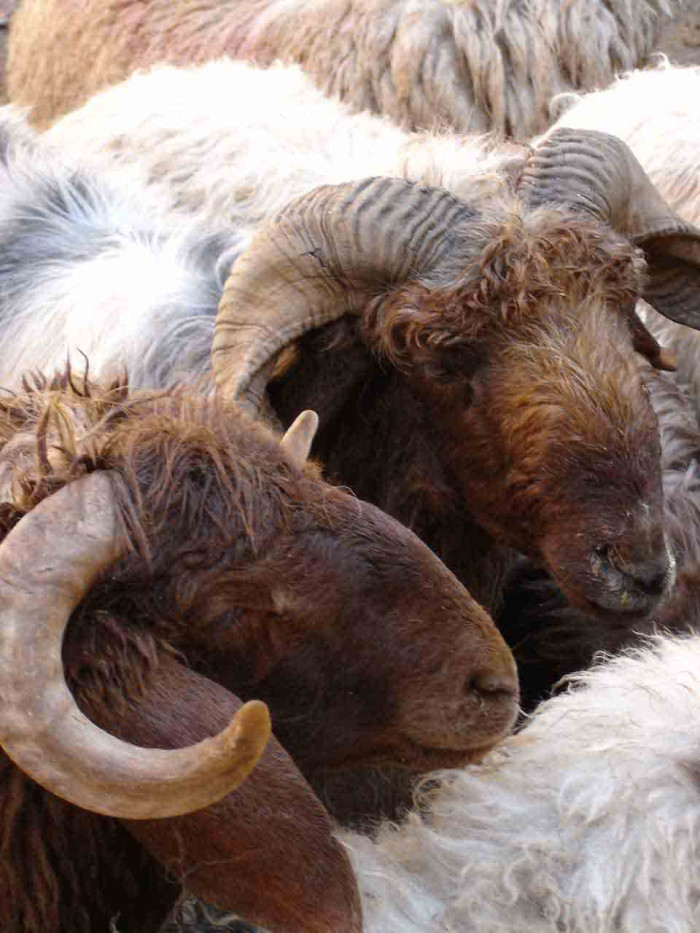

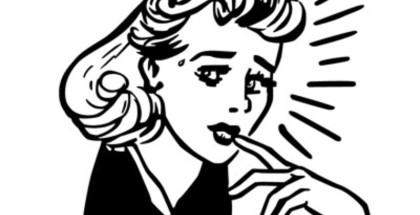
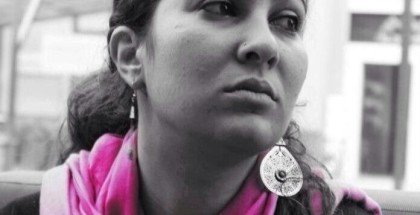
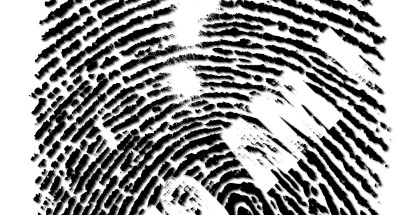
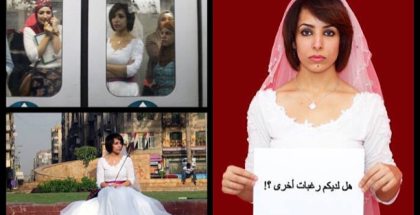
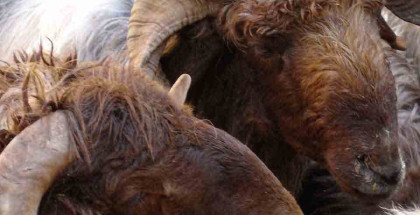
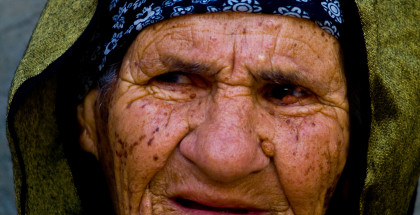

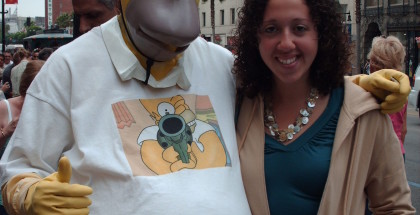

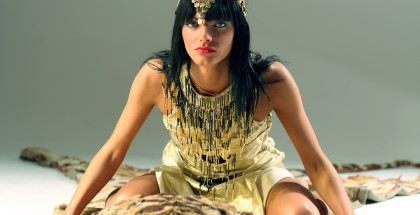














Comments